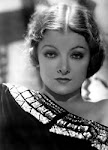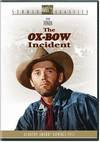The Golden Compass
The Exorcist
The Da Vinci Code
The Christmas before last, I took my granddaughter to see The Golden Compass. My wife and I originally went to see it with the mistaken assumption that it was an adult-oriented adventure. Obviously, we had not read the book. Nonetheless, we both enjoyed it immensely and saw our granddaughter in the role of the heroine. We both knew our granddaughter would love the movie as much as we did.
After my then-11-year-old granddaughter and I walked out of the theater in Garner, N.C., I asked her what she thought of it.
She said she liked the movie but, “It wasn’t as good as the book.”
I had to smile. This is the girl who, at the age of 7, was sitting in her pediatrician’s office and asked her mother what a franchise was after reading about them in the Business Week magazine in the doctor’s waiting room.
So after my wife and I boarded the plane to return to our home in Miami, I began reading The Golden Compass, which my granddaughter was happy to lend me. And I had to admit after reading it, that it was better than the movie – and like I said previously, I loved the movie.
Which brings me to an important point I want to make before I get any deeper into this series about my love affair with movies: Watching may be wonderful but reading can be rapturous.
First let me begin by telling you that most of my life has been spent reading, editing and writing for newspapers. When I was in junior high school (JHS 141) in the Bronx, I read two newspapers every school day – The New York Daily News on the bus going to school and The New York Post on the ride home – and on Sunday’s shared my father’s New York Times after reading the comics in The News. I loved newspapers, especially the sports sections. In high school (New York Military Academy in Cornwall-on-Hudson, N.Y.), I wrote all the sports articles for the year books while I was there and my senior year I was the Sports Editor for the school newspaper, The Ramble.
While attending college (George Washington University in Washington, D.C.), I worked as a high school sports writer and copy aide for the now defunct Washington Star. A year after graduation, I began working at The Washington Post, where I stayed for almost 20 years. When I left, I was one of the copy/layout editors in the sports department. Since leaving The Post – and a brief stint as a teacher in the D.C. public schools – I have worked as a copy editor for Black Issues in Higher Education (now Diversity Issues in Higher Education), Community College Week, Transport Topics Publishing Group and The Miami Herald.
The decline in readership at newspapers distresses me greatly – and not just because my job as sports editor for The Miami Herald International Edition was outsourced to a company in India, leaving me among the ranks of the unemployed. Newspapers have been a mainstay of American culture since before the birth of this nation. And while television has become the main source of learning about the events of the day, the time constraints of televised production means much of the details and behind-the-scenes activities go uncovered. The more informed we are, the better it is for our country.
But this is not the only reason to read. Novels, short stories and poetry can be just as informative as newspapers – and they can reach a visceral level that newspapers seldom do. Additionally, as demonstrated above, novels, short stories and poetry are the seeds that produce cinematic fruit. And every person involved with making movies has to be able to read.
If I find out about a movie that is based on a novel, I will often read the novel before I see the movie. I like to compare the written word with what makes it to the big screen. When The Exorcist came out in the early 1970s, I was still finishing the book as I waited on line to buy tickets on opening weekend. I enjoyed the book, and I still found the visualization stunning – and just as creepy. Likewise for The Da Vinci Code, which was a thoroughly enjoyable read. And for me, this movie remained truer to the book than any other movie I have seen.
This suggestion, to read the story before viewing it on the big screen, should also apply to movies made for children. How often does a child watch the same movie over and over again and still enjoy it. Reading the book and then watching the movie is the same dynamic. As my granddaughter proved, you can read the story first and still enjoy the movie – even if you prefer the story told by the written word.
Saturday, February 7, 2009
Subscribe to:
Post Comments (Atom)






























































No comments:
Post a Comment